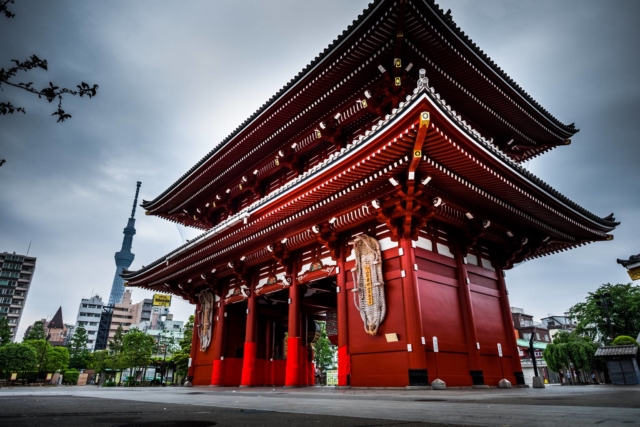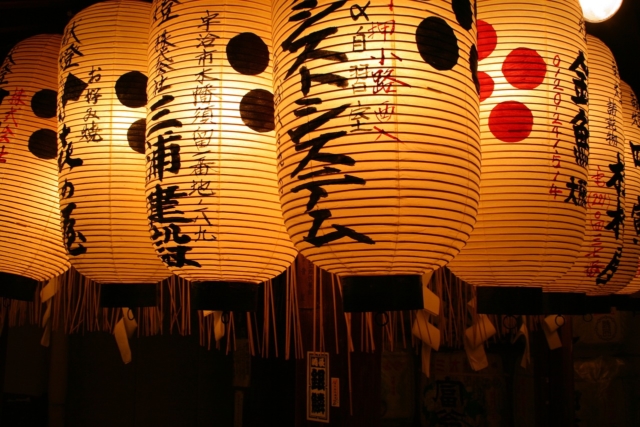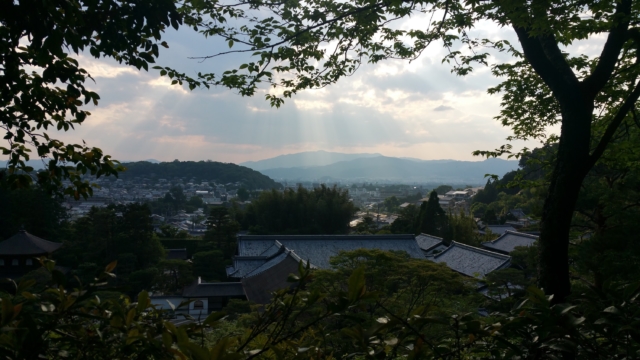
The Obon (or Bon) Festival, widely known as the Festival of Souls, commences on August 13th and ends on August 16th this year. This annual Japanese Buddhist three-day festival is dedicated to celebrating Japanese family heritage. The origin begins with a disciple of Buddha, Mokuren (Maha Maudgalyayana), who used his powers to peer into the position of his deceased mother. Morkuren discovered that her spirit was trapped in the Realm of Hungry Ghosts. Apprehensive of his mother’s plight, he turned to Buddha in hopes that he could free her. Buddha advised his disciple to gift offerings to the sangha (monks) who had returned from the summer retreat. Through the merits of his actions, his mother was released from suffering to arise as a Buddha. Delighted, Morkuren danced and gave creation to the tradition of Bon Odori.
The Festivities
On the first day of Obon, Lanterns are hung near graves, temples and homes as a welcome to light the way for the spirits return. It is believed that the ancestors’ spirits return to this world to visit their relatives. The highlight of the celebration is called Bon Odori, which involves parades of traditional dancing around platforms called a yagura. Other traditions are dependent on region, such as Kyoto’s fire festival where 600 foot high bonfires are built mountainside as a radiant nightly spectacle. On the last day of Obon, bon fires, candles, and lanterns are released to guide the departing souls back to their world, as a luminous farewell.
Impact of Modern Civilization
Obon has been celebrated for over 500 years. However, in contrast to Japanese deep spiritual roots, current Obon festivals are evolving; some say in a secular nature. As civilization advances, and obsolete practices are discontinued, the true meaning of Obon is revealed. Despite the perceived compromise, fundamental values such as harmony, family, and gratitude, remain the same. As innovation supplements tradition, Japanese youth seek a balance between sacred traditions and new cultural values. New methods keep tradition alive through family practices. Obon celebrates interconnection between nature and souls (living or dead) that supersedes daily life. Participants are meant to forget their trifles in celebration of our elders. Ancestors are the original founders of our life today, it is easy to forget that without them, there would be no us.
Bon Odori Festivals
If you find yourself wandering the streets of Japan during these wonderful events, immerse yourself in Japanese culture by attending a grand Bon Odori. Visit Kyoto for the fire festival, Tokushima city for the greatest preserved dance (Awe Odori dating back to 1578), Nagasaki for the spirit boat festival, Gujo for the largest Odori dance party or Mikasa for an intimate festival by the locals. For more information, please visit the Five Favorite Obon Festivals. If you get the chance to witness Bon Odori, Obon is an unforgettable spectacle of solidarity that has lasted throughout the ages. For more history on Obon, read Obon: Celebrate, Respect and Remember Ancestors.
Sharon Schweitzer and Vienna Raglin co-wrote this post. Sharon Schweitzer, J.D., is a cross-cultural trainer, modern manners expert, and the founder of Access to Culture. In addition to her accreditation in intercultural management from the HOFSTEDE centre, she serves as a Chinese Ceremonial Dining Etiquette Specialist in the documentary series Confucius was a Foodie, on Nat Geo People. She is the resident etiquette expert on two popular lifestyle shows: ABC Tampa Bay’s Morning Blend and CBS Austin’s We Are Austin. She is regularly quoted by BBC Capital, Investor’s Business Daily, Fortune, and the National Business Journals. Her Amazon #1 Best Selling book in International Business, Access to Asia: Your Multicultural Business Guide, now in its third printing, was named to Kirkus Reviews’ Best Books of 2015. She’s a winner of the British Airways International Trade Award at the 2016 Greater Austin Business Awards and the 2017 New York City Big Book Award for Multicultural Nonfiction.
Vienna Raglin is the Marketing and Sales Manager at Access to Culture. With a professional background in Sales and Hospitality, she earned a BBA in Marketing and Sales from Texas State University. She can be found on Linkedin
Temple Sensō-ji photo by Josh Raglin
Lantern photo by Maxpixel
Temple overview photo by Josh Raglin
Sources:
The Japanese Festival of the Dead: Obon
Japanese Americans keeping the Obon Tradition Alive



Leave A Comment